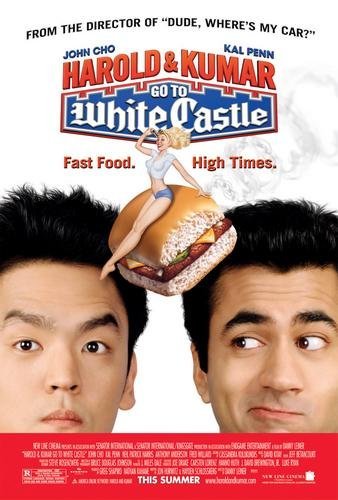High Times in Hollywood
- madison5024
- Feb 14, 2024
- 3 min read
Updated: Dec 19, 2025
From the early days of Reefer Madness to the laid-back vibes of Pineapple Express, the portrayal of cannabis in movies has taken a dramatic turn. Initially depicted as a dangerous substance leading to moral decay, cannabis is now often shown in a much lighter, even positive, light.
The portrayal of cannabis in cinema acts like a mirror reflecting society's changing attitudes towards the plant. Classic "stoner" movies not only entertain the masses, but they contribute to a broader conversation about cannabis, challenging stereotypes and encouraging more conversations about its role in society. This transformation is not just about cannabis but also a broader shift in societal values, perceptions, and legalities surrounding the plant.
From Propaganda to Parody
The cinematic journey of cannabis began in the 1930s with films like Reefer Madness. Initially intended as scaremongering propaganda, it ironically became a cult classic, highlighting society's growing curiosity about cannabis. Fast forward a few decades, and the narrative shifts dramatically. In the counterculture movements of the 60s and 70s, amidst the backdrop of the Vietnam War, cannabis becomes a symbol of rebellion, peace, and freedom.
Movies like Easy Rider and Cheech & Chong's Up in Smoke paint cannabis in strokes of rebellion, freedom, and camaraderie. These movies not only captivated audiences but also challenged what society considered normal, making cannabis a significant aspect of countercultural movements.
As we roll into the 90s, cannabis found a new home in the genre of comedy. Films such as Dazed and Confused, Half Baked, Friday, and The Big Lebowski used cannabis-related humor to connect with audiences, portraying it as a source of laughter and lightheartedness. This shift not only entertained audiences, but also played a crucial role in normalizing cannabis, transitioning it from a controversial topic to a commonplace element in storytelling.
Then the early 2000s brought along movies like Pineapple Express, Harold & Kumar Go to White Castle, How High, and Ted, where humor is further utilized to normalize cannabis, presenting it as a source of hilarious misadventures and bonding. This era marked a significant shift in how cannabis was viewed in the mainstream, with these films playing a pivotal role in changing perceptions.
Beyond genres, cannabis started to be portrayed more as a character itself, influencing plots and shaping narratives. Whether through the comedic escapades in Pineapple Express or the laid-back lifestyle of The Big Lebowski, cannabis-centric films began to explore deeper themes of friendship, societal critique, and the quest for personal freedom.
Breaking Down the Stigma
Today, films and characters that include cannabis are no longer one-dimensional, reflecting the complex relationship society has with the plant. This shift is significant in breaking down the stigma that has surrounded cannabis for decades, showcasing it as a part of everyday life for many people.
Despite progress, the challenge remains to break down lingering stereotypes. While stoner comedies have done much to normalize cannabis, they often rely on caricatures. The next frontier in cannabis cinema involves portraying the plant's role in diverse, relatable ways, moving beyond the stoner stereotype to reflect its place in the lives of ordinary people.
The evolution of cannabis cinema is a reflection of the changing legal and cultural environments surrounding cannabis. As more regions legalize cannabis for medical and recreational use, its portrayal in films shifts from cautionary tales to more nuanced narratives that reflect its complex role in society.

From its early days as a subject of fear and demonization to its current status as a symbol of humor, personal freedom, and even normalcy, cannabis has undoubtedly left its mark on the world of film. As we move forward, the evolution of this relationship will continue to intrigue and entertain audiences worldwide.
So, whether you're a fan of the genre or just curious about the cultural impact of cannabis on cinema, there's no denying the significant role it plays in storytelling and societal discourse. Grab your popcorn, and let's enjoy the ride through the high times of cannabis in cinema.
February 14, 2024
References


























Comments